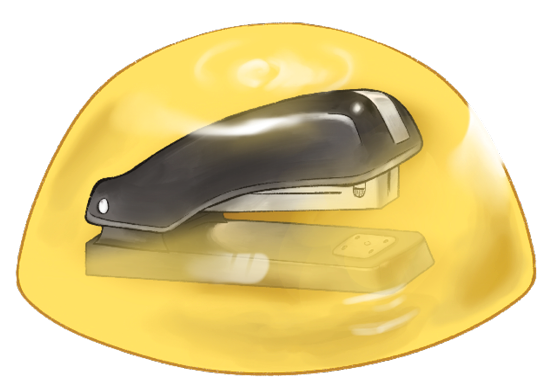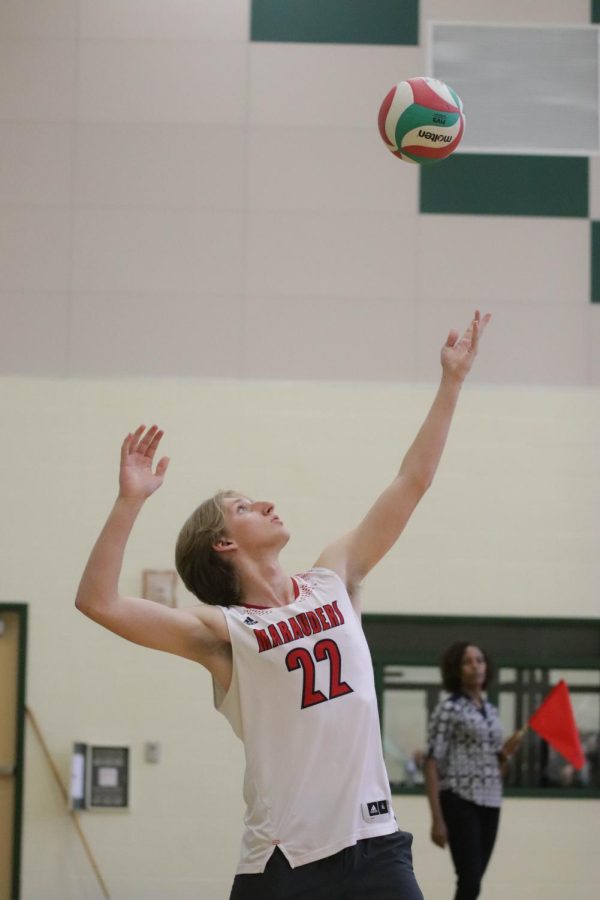As World War II veteran Don Graves recalls the battle of Iwo Jima, one of the bloodiest in the war, he doesn’t flinch. While his sadness is evident as he relives the deaths of 7,000 of his fellow Marines, he is also prideful. He radiates the honor he felt as he witnessed Marines erect an American Flag on Mount Suribachi. And as he wears his Iwo Jima survivor hat 72 years later, he remains patriotic about a battle that would become an iconic image of American pride.
Graves regularly speaks to several student groups about World War II in hopes that stories of his service will inspire patriotism in the younger generation.
“We wanted to defend one another and protect our country,” Graves said. “We loved our flag. That’s the kind of people we were. I don’t see that today.”
• • •
Life was different when Graves was a teen. He remembers watching westerns at his local theater for only a dime, and marching out to the flagpole to say the pledge of allegiance every school day. The day after Pearl Harbor, he recalls talking about it with his friends as jazz music filled their Model A car. The radio’s upbeat tunes were interrupted with the steady voice of President Franklin Roosevelt. He spoke of the attack on Pearl Harbor. Graves listened intently as Roosevelt recited his historic words that would mark the beginning of the United States’ involvement in World War II — December 7, 1941, “a date which will live in infamy.”
“It was the greatest speech I’ve ever heard,” Graves said. “I’ve never heard one like it since. I said I’m going to join the Marine Corps.”
Several months later, Graves headed for Iwo Jima with the fifth division. His mission was to secure Mount Suribachi, the highest point on the island. As a flamethrower operator, Graves would burn out caves to force Japanese soldiers out. From the beach to Mount Suribachi, his division had to travel only 560 feet. Despite the short distance, it took them three days to reach the mountain.
“That tells you the kind of fighting we had to do,” Graves said. “All night fighting.”
When Graves first arrived in late February, he was told he would only spend three days on the eight square mile island. Five weeks later, he was still on Iwo Jima. He witnessed brutal fighting during the day, worse than any previous battles he had seen, with little relief at night. After hours of not sleeping, he would even begin to hallucinate. From the bloodstained sands to the smoke ridden sky, the decimated island reflected the heavy losses incurred by both the Americans and Japanese.
Graves’ battalion commander had given a few men the task of putting an American flag on top of Mount Suribachi. They erected the first American flag on Japanese soil although they hadn’t originally planned on it. Graves said he stood just a few feet away of what would one day become one of the most iconic American images. When the flag went up, he saw and heard 500 naval ships sound their horns and send tracers in the air.
“It was just like the 4th of July in New York Harbor in the evening,” Graves said. “It was jubilant.”
Despite the American victory at the Battle of Iwo Jima, Graves said the United States suffered great losses. According to Graves, 7,000 Marines were killed, and 20,000 were wounded. Graves lost several friends including his squad leader, captain and platoon leaders. Three of the six men Graves watched put up the American flag died within days of that moment.
After weeks of fighting, Graves was notified that he would soon be relieved. He was ready to go. As they left, Graves’ regimental commander asked them to file through the fifth division cemetery. Graves saw the headstones of several of his friends, including three high school classmates. He noticed an inscription written by some fallen soldiers on a box that food rations came in. It read, “Fellas, when you go home, tell the folks we did our best so that you may have many more tomorrows.”
“It just broke us down,” Graves said. “It was just devastating. There wasn’t a dry eye on a Marine as we came out of there.”
One consequence of his time in Iwo Jima was his newly found faith. As a child of the Depression, Graves said he wasn’t a frequent churchgoer due to the lack of church clothes. While in Iwo Jima, Graves said he prayed to leave the island.
“I buried my face on the sand of that beach and I said God if you’re real, if you can do for me what people say you can do, I will serve you the rest of my life,” Graves said.
Graves attributes his safe return to God and has maintained his faith since. He has even gone on to preach in six different states.
When he returned to Japan as part of the occupation force after the war, Graves did not know what to expect. He stepped onto a barren land with no civilians or military. He only saw unmanned guns jutting out of the landscape. Two weeks after their occupation began, children would slowly come to interact with the American soldiers. Graves and his fellow Marines would give them candy bars. Graves said that it was this simple communication that began to break barriers between American and Japanese cultures.
“They found out that we weren’t the kind of people that their propaganda told them,” Graves said.
As Graves passed through a park in Fukuoka, Japan, a college town, he heard girls singing. He has always loved to sing, so he followed the tune. When he got to a one room schoolhouse, he was invited in and given a chance to discuss American culture and sing with the girls.
“The Japanese people are very kind,” Graves said. “They were very hospitable, they were so good to me.”
• • •
Three years ago, Graves was one of 15 Marines to return to the site of the Battle of Iwo Jima. Although this was an opportunity for remembrance, Graves said much of the island had changed. The vegetation covered most of the landscape, and the site where he lost his battalion was inaccessible because it was restricted by the Japanese military. As they drove to the top of Mount Suribachi, a pole remains standing, but the American flag that once waved has been removed.
Despite the impact Graves and other World War II veterans have had on American history, he is afraid stories like his will fade with time. Currently, only about four percent of WWII veterans remain, and about 500 die every day. By speaking to teenagers, he hopes to instill an appreciation for the history he helped to create in today’s youth.
“It takes teenagers, young men, to win a war,” Graves said. “The older men just won’t fight like young men.”
Today, Graves still shares his love of country. For him, singing the national anthem is a perfect expression of his strong patriotism. He sings whenever he’s asked, including twice at a Rangers game and in December for a crowd of 45,000 at the Armed Forces Bowl. Graves stands tall as his rich voice reverberates throughout the stadium. Each note he hits is a reminder of the deep meaning of the anthem, and all he has done to preserve it.
“I just feel more patriotic because that’s a hard song to sing,” Graves said. “I want to sing it legitimately, the way it was written. I just open my heart up and visualize the American flag, and sing it.”







